 | 1813 - 574 pages
...the revolution of particles round their axes, at the moment when the body becomes fluid or zriform, or from the loss of rapidity of vibration in consequence...motion of the particles through . greater space.' The section on chemical attraction, and on the laws of combination and decomposition, is interesting,... | |
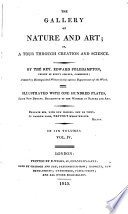 | Edward Polehampton - 1815 - 628 pages
...consequence of the re. volution of particles round their axes, at the moment when the body becomes fluid or aeriform, or from the loss of rapidity of vibration...motion of the particles through greater space. If a speciGc fluid of heat be admitted, it must be supposed liable to most of the affections which the particles... | |
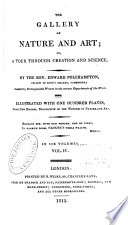 | Edward T W. Polehampton - 1815 - 588 pages
...consequence of the re. voluHbn of particles round their axes, at the moment when the body becomes fluid or aeriform, or from the loss of rapidity of vibration in consequence of the motion of the panicles through greater space. If a specific fluid of heat be admitted, it mast be supposed lia'fale... | |
 | Thomas Thomson - 1817 - 546 pages
...consequence of the revolution of particles round their axes, at the moment when the body becomes fluid or aeriform, or from the loss of rapidity of vibration...the motion of the particles through greater space. This hypothesis is founded upon an assumption which cannot be admitted fora moment ; that the particles... | |
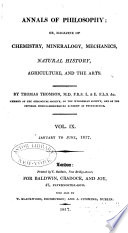 | 1817 - 534 pages
...consequence of the revolution of particles round their axes, at the moment when the body becomes fluid or aeriform, or from the loss of rapidity of vibration...the motion of the particles through greater space. y; ? •*• . • •'* 18 17-] On the Chemical Phenomena of Heat. 42S This hypothesis is founded... | |
 | Andrew Ure - 1821 - 436 pages
...in greater space ¡and the diminution of temperature, during the conversion of solids into fluidsor gases, may be explained on the idea of the loss of...must be supposed liable to most of the affections wJiich the particles of common matter are assumed to possess, to account for the phenomena; such as... | |
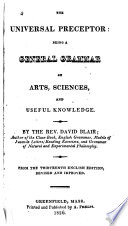 | Sir Richard Phillips - 1826 - 322 pages
...particles round their axis, at the moment when the body becomes fluid or KTisbrm, or from the Iocs of rapidity of vibration in consequence of the motion of the particles. J)ari/\t Chemistry. 8. In fine, says Sir R. Phillips, Motions of matter subject to regular mechanical... | |
 | Andrew Ure - 1827 - 904 pages
...round their axes, at the moment when the body becomes liquid or aeriform ; or from the lossofrapidity of vibration, in consequence of the motion of the particles through greater “ If a specific fluid of heat be admitted, It must be supposed liable to most of the of. fections... | |
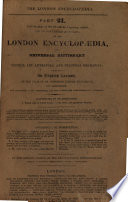 | Thomas Curtis (of Grove house sch, Islington) - 416 pages
...the vibratory motion, which must be conceived greatest in the last, the particles have a motion round their own axes, with different velocities, the particles...to possess, to account for the phenomena ; such as los'ng its motion when combining with bodies, producing motion when transmitted from one body to another,... | |
 | Thomas Curtis (of Grove house sch, Islington) - 826 pages
...particles round their axes, at the moment when the body becomes liquid or aeriform ; or from the lo-.s of rapidity of vibration, in consequence of the motion...the affections which the particles of common matter ate assumed to possess, to account for the phenomena ; such as los'.ng its motion when combining with... | |
| |